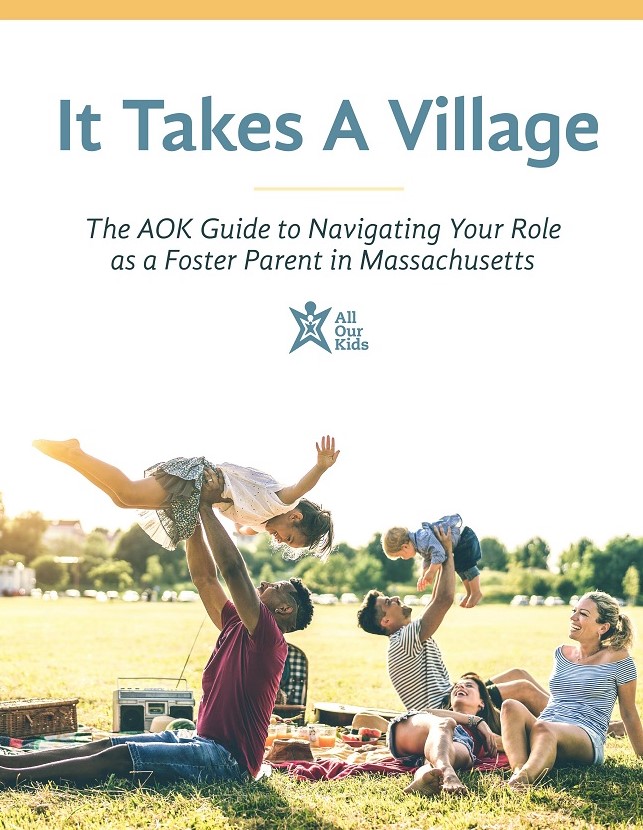Who’s Who In the Court Process
There is typically no shortage of attorneys of attorneys and other court personnel involved in a DCF case.
Parents’ Attorneys
Each birth parent will have his or her own attorney, because they may be in different positions with respect to their ability and availability to parent. This means there can be as few as one parent attorney, or as many as there are parents in the case (one mother, and multiple fathers for example; DCF cases are filed and organized by the mother, not the father).
DCF’s Attorney
DCF is also represented by an attorney, whose job it is to argue DCF’s position regarding removal, reunification, or termination of parental rights.
Children’s Attorneys
Children in one biological family are sometimes represented by the same attorney, but may have different attorneys if they came into care at different times, or if their situations or wants are different. This leads to a key point – attorneys have to represent what their clients want, even if it’s not what the attorney thinks is best for them. This means if your six-year-old foster child is telling her attorney she wants to go home, that’s what the child’s attorney must advocate for, regardless of the attorney’s view of what the child should want, or what is best for the child. With respect to children too young to speak for themselves, the attorney is tasked with exercising “substituted judgment,” which means he or she must, to the best of his or her ability, stand in the shoes of the child and figure out what the child would want if the child could express it.
Foster parents often take issue with the default assumption that infants want to be reunified with their biological family. This assumption, while not perfect, is based on the fact that most children want reunification unless and until they have been so hurt that they want something else. It’s a reasonable assumption that, all things being equal, most people would choose to be raised in their family of origin. Attorneys who represent infants will typically assume that infant wants to return to their family of origin.
The guideline for attorneys to visit their child clients is once per quarter. It is also good practice for them to visit any time the child enters a new placement. At minimum, the attorney should see the child in your home at least once. It is not uncommon for an attorney to request to speak with an older child privately, or to see the child’s room and possessions, which is appropriate given their role. After an initial meeting in your home, it’s fine for an attorney to see a child in their daycare or school setting, particularly if the child is older. While further home visits make sense in an ongoing case, it would be good practice for the attorney to see the child in his or her daycare or school setting at least once.
If you are concerned about the representation the child is receiving or if the attorney has not made contact, the head of DCF’s legal department has instructed foster parents to contact the Children and Family Law Division (CAFL) of the Committee for Public Counsel Services. The CAFL, which is part of the state public defender’s office is tasked with representing parents and children in “Care and Protection” proceedings. They are the entity that assigns attorneys to the case, and they need to know whether a child’s attorney is behaving unethically, irresponsibly, or ineffectively in any way. This is also really the only entity that has any oversight of these attorneys, as the attorneys work independently as state contractors.
There is no Foster Parent Attorney
You’ll notice a foster parent attorney was not listed above. That is because foster parents are not a legal party to the case and, therefore, have no right to representation in court. Although some foster parents opt to hire their own attorney to provide legal advice in complicated cases, there is no guarantee that the judge overseeing the case will allow your attorney to participate. You can read more about the role of foster parents in court here.
Why So Many Attorneys?
At minumum, on a case with one child and one involved parent, you’ll typically have four attorneys at any court event because even a parent who has never established parental rights (in most instances, a “putative father,” meaning an individual who is identified by the child’s mother, but has been either not found or has denied paternity) will be represented for much of the case and given many chances to establish parental rights. So, minimum attorney involvement is: mother’s attorney, father’s attorney, child’s attorney, and DCF’s attorney.
Why so much representation and so many chances? Removing a child from their birth parents, even on a temporary basis, is a great infringement on parental rights. The magnitude of the possibility of legal and permanent termination of parental rights is monumental and requires an extremely judicious use of authority, with significant checks and balances. Many of us would agree that we’d rather go to jail than lose all legal connection to our children. Given the astounding power the Juvenile Court has to decree that someone who gave birth to or fathered a child is no longer a parent, the number of attorneys and court personnel involved also affords parents a tremendous amount of protection and opportunities.
Other Court Personnel
Probation Officers
In Care and Protection cases, probation officers are often dispatched to check on the condition of a foster home. Many foster parents are surprised to get a call from a probation officer for the case of an infant too young to have committed any crime! Rest assured they are simply acting in an oversight capacity to ensure DCF is doing its job. Typically, a probation officer would only come to your home once, and usually fairly early on in the child’s placement with you (most likely within the first month).
Court Investigator
These are appointed by the Juvenile Court to investigate the circumstances of the child and parents and produce a detailed report for the Court. Essentially, court investigators are the “eyes and ears” of the court out in the community with respect to the players in the case. While the quality of the reports may vary, this can be a very important document for the Court in deciding on an outcome at trial, and in writing its findings (which go to the Appeals Court in the event of an appeal). The Court Investigator is often a lawyer or a social worker by training, but does not work for DCF or for the agency that appoints counsel for children and parents. Typically, the Court Investigator only does one report per case, so if you are a foster parent who comes into a case later, you may not meet this person.
Guardians Ad Litem
These individuals are sometimes appointed by the court to get another perspective on a case (or they may be appointed for a specific purpose, such as to consider waiving a child’s psychotherapist-patient privilege). When generally appointed, they are charged with giving a perspective on what’s in the child’s best interest, not necessarily what the child wants, which is the province of the child’s attorney.
CASA Workers (Court-Appointed Special Advocate)
These volunteers have a role like that of the guardian ad litem, and can be another advocate for the child’s best interest. They can also sometimes support the foster or birth family in a variety of ways.
Bonding Evaluators
These are expert witnesses appointed to consider the bond between a child and his or her substitute parenting figure (foster/pre-adoptive parent), the child and his or her biological parent, or both. They typically produce a written report that is submitted to the Court, and may be called to testify at a trial.
Rogers Monitor
If a child in foster care needs treatment for a mental illness that the court deems “extraordinary” (some prescription medications fall in this category), the court needs to provide permission through a Rogers order. When a Rogers order is granted, the court also appoints a Rogers monitor, typically an attorney contracted by the state who is otherwise unrelated to the case. This person’s job is to oversee that the child is being medicated in accordance with the court-approved treatment plan.
Want to learn more about navigating your role as a foster parent in Massachusetts?
It Takes a Village is the first and only comprehensive guidebook available. Order your copy today!

